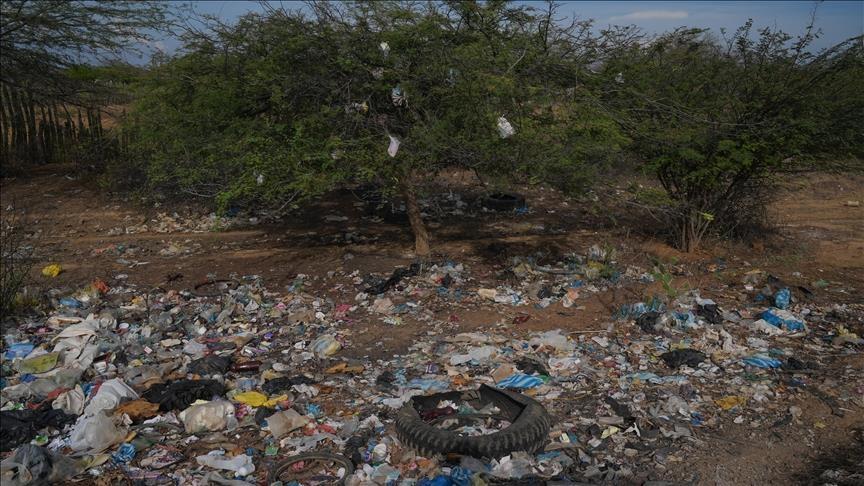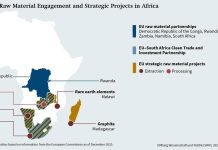Africa-Press – Mauritius. A global agreement to tackle plastic pollution could open up new opportunities and generate jobs across multiple sectors, as global plastic production reached 436 million metric tons with a trade value of over $1.1 trillion in 2023, according to the UN Conference on Trade and Development (UNCTAD).
Plastic now accounts for 5% of total global goods trade, with trade volume rising by 48% between 2005 and 2023 — a major factor contributing to environmental pollution.
Of all plastic produced, 75% becomes waste, much of which ends up in oceans, threatening ecosystems and livelihoods.
Plastic pollution poses particular risks to food security and public health in small island and coastal countries, where resources to manage the problem remain limited.
Trade policies further complicate the issue as average tariffs on plastic and rubber products among most favored nations (MFN) fell from 34% to 7.2%, contributing to the low price of fossil fuel-based plastics. In contrast, non-plastic alternatives such as bamboo, natural fibers, and seaweed face higher average MFN tariffs of 14.4%.
UNCTAD warns that these disparities stifle innovation in developing countries and slow the shift away from fossil fuel-based plastics.
Almost all plastics are derived from fossil fuels, leading to rising emissions and long-term environmental damage if the plastic industry is not brought under control. Many countries have introduced non-tariff measures such as bans, labeling requirements, and standards to restrict the flow of harmful plastics.
However, the lack of a global agreement on preventing plastic pollution worldwide remains a significant barrier to addressing this critical and growing challenge threatening the environment.
The second part of the fifth session of the UN Environment Program’s Intergovernmental Negotiating Committee (INC-5.2), held in Geneva in Aug. 5-14, failed to produce a legally binding agreement on plastic pollution, including marine waste.
The Geneva talks that took place last week were preceded by five other UN sessions, held around the world since November 2022.
“Failing to reach the goal we set for ourselves may bring sadness, even frustration. Yet it should not lead to discouragement. On the contrary, it should spur us to regain our energy, renew our commitments, and unite our aspirations,” said INC chair, Ambassador Luis Vayas Valdivieso, in a press release.
‘Global agreement could align nations around clear rules’
Speaking to Anadolu, Erin Simon, the vice president of Plastic Waste and Business at the World Wildlife Fund, said that a “well-designed global agreement on pollution” could help “align nations around clear, consistent rules for how plastics are made and used” and create “amazing economic opportunities” for many economies worldwide.
“In terms of jobs, recycled content is tipped to increase globally by 77%, and with a modernized plastics circular economy spurred on by a global treaty, sectors like recycling, reuse, and waste management will expand rapidly in response to rising demand for sustainable materials,” she said. “The US plastics values chain alone is projected to see a 27% increase in jobs.”
Simon underlined that standardized design requirements under a global treaty could boost efficiency and cut costs in public waste management, adding that “smarter design, lower waste volumes, and schemes like an expanded Extended Producer Responsibility program” could lead to a reduction of the current costs of net public waste management.
“Less waste also means less strain on local budgets, and while some may argue that a global treaty could cause plastic production to decline, this decline is slight and largely offset by growth in recycling, reuse, and waste management,” she said.
MSMEs key to combating plastic pollution
Simon emphasized the critical role played by micro-, small-, and medium-sized enterprises (MSMEs), which make up 90% of businesses worldwide, in driving innovation in areas such as packaging.
“Research indicates that, if implemented effectively and fairly, global rules on key areas such as phaseouts and product design could actually unlock significant opportunities and benefits across the MSME landscape, including new market opportunities in sectors where MSMEs are key actors such as the operation of product delivery models, production of alternative materials, and waste management,” Simon said.
“However, in the immediate and short term, it is important to recognize that MSMEs in certain parts of the value chain may also experience challenges, including contracting markets, temporary price increases, and employment shifts as a result of new legislation emerging from the plastics treaty,” she added.
For More News And Analysis About Mauritius Follow Africa-Press







